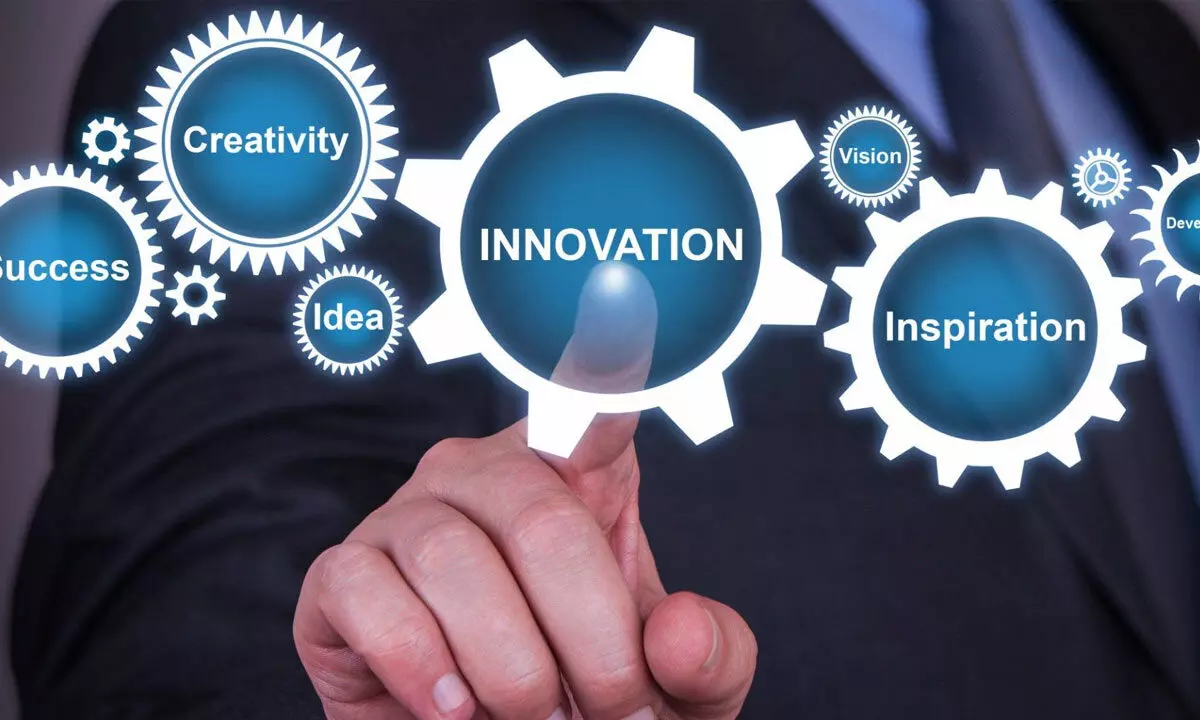Live
- ‘Get Set, Grow Summit 2024’ Focuses on Digital Detox for Families
- Stokes motivates his team to put in extra effort, says England pacer Potts
- From overcoming setbacks to leading India in U19 Women’s Asia Cup, Niki Prasad's amazing journey
- Driving Enterprise Security: Inside Venkata Reddy Thummala’s Leadership Journey
- Constitution debate: PM Modi hails 'Nari Shakti'; makes strong pitch for 'United Bharat’
- Abhijeet Bhardwaj: Revolutionizing Enterprise Analytics with Innovation and Expertise
- Bihar: Inquiry initiated against principal who went to buy veggies during school hours
- Press Sri Lankan Prez for release of Indian fishermen: TN Cong MP to EAM Jaishankar
- TN: DMK postpones executive meet due to heavy rains & Parliament session
- Porous silicon oxide electrodes can fix durability issues in batteries: Researchers
Just In
How education technology altering norms of innovation in special education


In the ever-changing world of education, technology acts as a powerful force for transformation, reinventing the essence of learning.
In the ever-changing world of education, technology acts as a powerful force for transformation, reinventing the essence of learning. Education is approaching a world where creativity knows no bounds because of the incorporation of educational technology, or edtech. As new technological trends arise, such as immersive learning, gamification, and artificial intelligence (AI), educators emerge amid a disruptive wave. As a result, it is critical to understand how Edtech—particularly the introduction of adaptive learning—is not only altering education but also serving as a model for innovation in special education, ensuring that each child’s educational route is tailored for success.
Here’s a look at how education technology is altering the norms of innovation in special education.
Customised Education
Edtech utilises the prospect of data-driven tools for tailored instruction in the realm of special education. Teachers can tailor instruction to each student’s unique needs by regularly monitoring their skills, interests, and requirements. Students can take control of their education and progress at their speed thanks to adaptive learning technologies. Furthermore, powerful algorithms monitor student growth and alter programs accordingly. This personalised method promotes comprehension and memory retention, allowing each kid to move through their learning journey with unprecedented flexibility and speed.
Innovative Educational Tools
Laptops, iPads, tablets, and digital whiteboards are examples of interactive learning aids that have been introduced into classrooms using modern educational technology. These breakthroughs have triggered a wave of change in education. These tools are becoming more widely used, altering the educational landscape. They not only help students learn in an enjoyable and engaging manner, but they also lay the groundwork for the future of education. As a result of the integration of technology, educational institutions now give students a vast digital library, allowing them to research and gain a deeper understanding of many topics.
AR/VR Integrated Education
Video games are becoming increasingly significant in education, as they have long promoted augmented reality (AR) and virtual reality (VR). These immersive learning options include firsthand accounts of historical events, virtual field trips, and cultural education, particularly for special education students. Consider the joy of discovering numerous areas right from the classroom - a unique experience for youngsters with special learning needs. The immersive nature of these online efforts has the potential to make education not just informative, but also enjoyable for all students.
Gamification and Immersive Experiences
Virtual reality and augmented reality are two truly immersive technologies that edtech expertly integrates with gamification components to provide compelling learning experiences, especially for special needs children. Gamified learning environments combine engaging mechanics, prizes, and objectives to engage learners and make learning enjoyable. VR and AR immersive simulations and visualisations enable exceptional pupils to master complex ideas using hands-on and interactive methods. These cutting-edge tools increase student engagement in the classroom by injecting enthusiasm into each student’s educational path.
A personalized approach to specialised schooling!
Edtech integration in special education has ushered in a new era of personalised, interactive, and immersive learning. Technology is changing educational norms, from personalised adaptive learning to AR/VR-based exploration. As instructors embrace these innovations, each child’s learning journey becomes a personalised path to success, emphasising inclusivity and efficiency in the changing landscape of special education.
(The author is CEO, Birla Brainiacs)

© 2024 Hyderabad Media House Limited/The Hans India. All rights reserved. Powered by hocalwire.com






